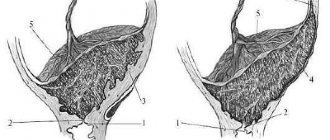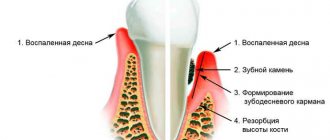What is the difference between a doctor and a doctor? - what's better
In developed countries, most medical problems are resolved at an initial outpatient appointment with a general practitioner. A family doctor helps save not only patients’ time, but also money. In many cases, he is able to replace specialized doctors and even emergency care teams.
General practitioner - who is it?
When visiting a hospital with any symptoms, a person first tries to get an appointment with a therapist. At the same time, patients rarely ask the question: who is the general practitioner in the clinic?
A family specialist also conducts consultations in medical institutions, but the scope of his activity is more extensive.
Thanks to a consultation with such a doctor, you can quickly establish a diagnosis without unnecessary instrumental and laboratory tests.
Therapist and general practitioner - the difference
A qualified family doctor is a multidisciplinary specialist with knowledge in all areas of medicine. The main difference between a therapist and a general practitioner is the scope of his work.
The responsibilities of a family specialist include more items.
Unlike a therapist, the doctor described can perform the simplest diagnostic and therapeutic manipulations, and the appropriate equipment is installed in his office.
General practitioner – qualification
The specialist in question first receives a basic higher medical education. Not all patients understand what a “general practitioner” means, confusing him with a therapist. Such a doctor has advanced qualifications.
To obtain it, after a basic diploma and internship, you must complete a residency in the specialty “Family Medicine (General Medical Practice).”
Hospital employees who received higher education before the introduction of this qualification can undergo accelerated initial retraining.
Where can a general practitioner work?
A family doctor is a universal specialty that allows you to get a job in both public and private clinics. While the work of a general practitioner is not appreciated in terms of material remuneration, many experienced professionals open their own consulting rooms. Some doctors only provide individual consultations with one or more families.
Equipment for a general practitioner's office
The described specialist can perform various diagnostic and therapeutic procedures. A family doctor has not only a phonendoscope, a thermometer and a tonometer, but also other devices. According to the standard, a doctor’s office must have all the necessary furniture for the work of a specialist, a nurse and the following equipment:
- portable electrocardiograph;
- defibrillator;
- express analyzers of urine, glucose, cholesterol, cardiac markers in the blood;
- smokelizer;
- pulse oximeter;
- equipment for measuring physical indicators (scales, stadiometer, stopwatch, pedometer, medical tuning fork, etc.);
- negatoscope;
- spirometer;
- artificial lung ventilation device;
- peak flow meter;
- tonometer for measuring fundus pressure;
- sterilizers;
- conicotomy kit;
- dynamometers;
- breathalyzer;
- gynecological set, chair;
- otolaryngological devices (tongue holder, mouth dilator, laryngeal forceps and others);
- tracheotomy kit;
- ophthalmoscope;
- equipment for providing primary traumatological and surgical care (stretcher, wooden shield, crutches, ice pack and others);
- otorhinoscope;
- styling;
- oxygen inhaler;
- suction device;
- bactericidal irradiator;
- neurological equipment (hammer, light guide);
- breathing tubes and apparatus;
- sterile scalpels and other devices.
What does a general practitioner do?
A qualified family doctor provides any type of medical care on an outpatient basis. If a patient presents with a pathology that is not included in the list of what a general practitioner treats, he is referred to a specialized specialist. The doctor controls all stages of diagnosis and therapy of his “ward” and makes adjustments if necessary.
General practitioner - job responsibilities
Family medicine involves long-term systematic monitoring of patients’ condition, organization of consultations with highly specialized doctors and laboratory tests, inpatient treatment and disease prevention. The main responsibilities of a general practitioner:
- collecting a detailed medical history of all family members;
- thorough examination of patients using objective medical methods;
- identifying specific studies and analyses;
- establishing diagnosis;
- entering all information into a personal card;
- prescription of effective treatment, referral to hospitalization if necessary;
- identification of risk factors for the development or exacerbation of chronic pathologies;
- vaccination;
- preparation of medical documentation (outpatient, sanatorium and resort cards, certificates, sick leave and others);
- pregnancy management (rarely, more often this is done by a gynecologist together with a family doctor);
- emergency assistance and consultations.
The family medicine doctor recommends mainly standard laboratory tests. After the initial appointment, the doctor prescribes:
If the basic set of tests is not enough, the family specialist will refer you for additional examinations:
- hormonal panel;
- blood test for sugar;
- identification of tumor markers;
- virology;
- analysis for helminthic infestations;
- cytology and others.
Types of diagnostics
There are many procedures that a family doctor performs - responsibilities include:
- listening to heart sounds and respiratory tract sounds;
- examination of lymph nodes;
- percussion of the back and chest;
- examination of the ears, larynx, nose;
- palpation of the digestive and urinary system;
- gynecological examinations;
- diagnostics of the condition of the musculoskeletal system;
- examination of the organs of vision;
- neurological examination and other diagnostic procedures.
When to contact a general practitioner?
Any change in your health or physical condition, including pregnancy, may be a reason to consult with a family specialist.
A general practitioner will not only make a preliminary diagnosis and give valuable recommendations, but will also develop an effective individual treatment regimen.
If the identified disease is outside the scope of his competence, the patient is referred to specialists of the appropriate narrow profile, and a list of necessary laboratory tests is provided.
An experienced family doctor will help with the following symptoms:
- high body temperature;
- skin rash;
- digestive disorders;
- pain syndrome of any intensity and localization;
- chronic fatigue;
- insomnia;
- deterioration of visual acuity or hearing;
- the appearance of new moles or changes in the appearance of existing nevi;
- shortness of breath, difficulty breathing;
- dizziness, decreased concentration;
- cough, hoarseness of voice;
- nasal congestion;
- sudden jumps in blood pressure;
- deterioration in performance;
- unreasonable loss or unreasonable weight gain;
- feeling of thirst, dry mouth;
- tingling in the limbs, numbness;
- limited mobility of the back and limbs;
- neuroses;
- depressive episodes and other symptoms.
In addition to treating existing diseases, a family specialist takes care of preventing the occurrence of pathologies. Standard doctor’s advice includes basic recommendations for leading the healthiest and most fulfilling lifestyle:
- Get enough sleep.
It is advisable to go to rest no later than 22-23 hours. Total sleep time is 8-10 hours. - Eat a balanced diet.
The diet should contain vitamins, proteins, minerals, amino acids and carbohydrates. It is important to satisfy the body's daily energy needs. - Make time for physical activity.
The minimum recommended by your family doctor is five to ten minutes of exercise in the morning. - Avoid emotional overload.
Stress not only negatively affects the psychological state, but also impairs the functioning of the immune system. - Treat chronic diseases in a timely manner.
In the presence of indolent pathologies, it is important to prevent their relapses by strictly following the preventive courses of therapy prescribed by the family doctor. - Attend regular checkups.
It is advisable to undergo a full medical examination once a year, and consult a dentist or gynecologist every 6 months.
Source:
What is the difference between a doctor and a doctor?
A doctor is a person who heals. A doctor is a person who teaches. In conversation, "doctor" is used as a doctor, but the doctor does not necessarily have to treat. Calling a doctor a doctor is not entirely correct.
Because a doctor could be a practicing doctor, but for a doctor to become a doctor, he must defend his scientific work.
Previously, these were two different concepts, but now in the modern world “doctor” and “physician” are used as synonyms.
Doctors
Doctor (English doctor) is a person with the highest academic degree. The doctor is conducting research.
Doctor Einstein
A doctor is a person who devotes his life to studying the human body, organism, protection against various diseases and their treatment. A doctor practices, a doctor studies. These two concepts are different in pronunciation, but similar in meaning.
What are the responsibilities of a doctor? Examination of patients, identifying symptoms, being able to distinguish between diseases, understanding medications in order to prescribe the correct treatment for the patient.
These words have completely different origins: doctor is a Slavic word associated with the word “to lie.” The initial meaning is "to speak". This is where it came from that a doctor is a person who removes diseases. Another meaning of the word “doctor” is “wizard”, “magician”.
Doctor - academic title (professor, associate professor, bachelor, master, doctor of philosophy). An academic title should not be confused with an academic degree.
Source:
Difference between doctor and doctor
Our life is closely connected with many branches of science and, of course, medicine is no exception. We are born in a medical facility, observed in a clinic, and subsequently undergo medical examinations and take our children there. That is why we often have the question of what is the difference between the terms doctor and doctor.
- articles
- A doctor is a practicing specialist with a medical education who has the appropriate qualifications in his specialty.
- A doctor is an academic degree next to a candidate of sciences, which characterizes a person as a researcher.
A Doctor of Science (even in medicine) does not have to be a doctor. A doctor, in turn, is not at all obliged to have an academic degree of doctor or candidate.
Comparison
However, in modern everyday life the words “doctor” and “physician” are often used as synonyms.
Why does this happen? Western Europe has practiced this approach since ancient times - only those who received a doctorate degree at a university could be a practicing doctor. To be a doctor, a doctor must complete a dissertation.
Today, many people believe that the title “doctor” is a laudatory title for a specialist, exalting his dignity. However, etiquette considers such a move unacceptable and unethical, as if you called any military man a general.
Doctor and healer are original Russian meanings that denoted a specialist who has the right to treat people or animals. Doctor (Doctor) is an English meaning that also means passing certification after completing an internship.
A doctor (from the word lie, speak, conspire) is a person who devotes all his knowledge to the study of human physiology, the prevention of various diseases and their treatment. A veterinarian is a person who has a diploma from a higher educational institution in the specialty of veterinary medicine.
He treats diseases in animals.
Doctor of Science (doctoral degree) for Russia and some CIS countries is an academic degree of the highest level.
In order to receive an academic degree, a specialist must write a dissertation that must comply with certain provisions.
In particular, it should contain original research and theoretical assumptions on the basis of which any scientific problem of particular importance for the country can be resolved.
Conclusions TheDifference.ru
- A doctor is a specialty, a profession. A doctor is an academic degree, as well as a person who has this degree.
- A doctor deals with the prevention and treatment of diseases, a doctor conducts scientific research in various fields of science and looks for ways to solve problems of national importance.
- A doctor is a practitioner, a doctor is a theorist.
- A doctor is not required to have a doctorate. A Doctor of Medicine does not have to be a doctor.
Source:
Doctor vs Doctor
"If symptoms continue, consult your doctor."
This is one of the statements that healthcare enthusiasts commonly hear. The reminder can be found in almost all commercials for medicines and vitamins. When patients experience a recurrence of symptoms, they dial their doctor to schedule an appointment for consultation.
So, which one should you visit: a doctor or a doctor? Perhaps a better question is whether there really is a difference between a doctor and a physician.
Various medical books and publications imply that doctors are responsible for providing care to patients after a thorough diagnosis, which should be based on patient interviews and physical examination. They can also provide tidbits of knowledge about how their patients can stay healthy and prevent disease.
Source: https://sosh16zernograd.ru/dom-i-semya/v-chem-raznitsa-mezhdu-vrachom-i-doktorom.html
General practitioner - who is it?
When visiting a hospital with any symptoms, a person first tries to get an appointment with a therapist. At the same time, patients rarely ask the question: who is the general practitioner in the clinic? A family specialist also conducts consultations in medical institutions, but the scope of his activity is more extensive. Thanks to a consultation with such a doctor, you can quickly establish a diagnosis without unnecessary instrumental and laboratory tests.
Therapist and general practitioner - the difference
A qualified family doctor is a multidisciplinary specialist with knowledge in all areas of medicine. The main difference between a therapist and a general practitioner is the scope of his work. The responsibilities of a family specialist include more items. Unlike a therapist, the doctor described can perform the simplest diagnostic and therapeutic manipulations, and the appropriate equipment is installed in his office.
General practitioner – qualification
The specialist in question first receives a basic higher medical education. Not all patients understand what a “general practitioner” means, confusing him with a therapist. Such a doctor has advanced qualifications. To obtain it, after a basic diploma and internship, you must complete a residency in the specialty “Family Medicine (General Medical Practice).” Hospital employees who received higher education before the introduction of this qualification can undergo accelerated initial retraining.
Where can a general practitioner work?
A family doctor is a universal specialty that allows you to get a job in both public and private clinics. While the work of a general practitioner is not appreciated in terms of material remuneration, many experienced professionals open their own consulting rooms. Some doctors only provide individual consultations with one or more families.
The described specialist can perform various diagnostic and therapeutic procedures. A family doctor has not only a phonendoscope, a thermometer and a tonometer, but also other devices. According to the standard, a doctor’s office must have all the necessary furniture for the work of a specialist, a nurse and the following equipment:
- portable electrocardiograph;
- defibrillator;
- express analyzers of urine, glucose, cholesterol, cardiac markers in the blood;
- smokelizer;
- pulse oximeter;
- equipment for measuring physical indicators (scales, stadiometer, stopwatch, pedometer, medical tuning fork, etc.);
- negatoscope;
- spirometer;
- artificial lung ventilation device;
- peak flow meter;
- tonometer for measuring fundus pressure;
- sterilizers;
- conicotomy kit;
- dynamometers;
- breathalyzer;
- gynecological set, chair;
- otolaryngological devices (tongue holder, mouth dilator, laryngeal forceps and others);
- tracheotomy kit;
- ophthalmoscope;
- equipment for providing primary traumatological and surgical care (stretcher, wooden shield, crutches, ice pack and others);
- otorhinoscope;
- styling;
- oxygen inhaler;
- suction device;
- bactericidal irradiator;
- neurological equipment (hammer, light guide);
- breathing tubes and apparatus;
- sterile scalpels and other devices.
What is the difference between a doctor and a doctor?
We are born in a medical facility, observed in a clinic, undergo medical examinations, and take our children to consultations. That is why the question often arises: what is the difference between the terms doctor and doctor.
Doctor
A profession that is assigned to students who have completed a course of study, practice in medicine and received a diploma confirming knowledge, qualifications, and the right to work in medicine or surgery.
Doctor's responsibilities:
- Responsible for providing medical care to patients following a thorough diagnosis based on patient interviews and laboratory testing.
- They give prescriptions and advice to the patient on how to receive treatment and maintain health.
- Determine the urgency of subsequent examinations and appointments, prescribe medications, treatment methods, issue sick leave certificates, consistently maintain outpatient records of patients, and reports.
- They carry out prevention and plan treatment of the disease based on the diagnosis and observed symptoms.
- They refer the patient to other specialists and give directions for a more accurate ultrasound examination.
- Refers for a medical and social examination regarding disability.
Doctor
The highest degree is awarded to a person on the basis of defending a dissertation , the next level being the Candidate of Sciences. You can defend a dissertation on any subject. PhD candidates conduct scientific research in various fields.
Doctoral degree awarded:
- Legal.
- Economic.
- Pedagogical.
- Technical.
- Psychological.
- Medical.
- Physical and mathematical sciences.
You can be a doctor in various fields. For example: a person who has a doctorate in history is a Doctor of Historical Sciences.
Similarities
A doctor has a diploma confirming what activities he is allowed to engage in: treating people or animals, injuries or diseases. Doctors are called orthopedists, dentists, clinical psychologists, chiropractors, and physiotherapists. In the CIS countries, a doctor or other specialist who has graduated from a university and defended his PhD thesis receives a doctorate.
In America, the word means passing certification after completing an internship. Doctor is a title awarded to persons who have achieved the highest degree in the field of medicine, law, art, dentistry, and veterinary medicine. Translated from Latin, the word means to teach, teach, explain.
A citizen’s academic degree is confirmed by a corresponding document – a diploma.
It is believed that in medical practice these terms are synonyms . You can say: I’ll go to the doctor, I’ll go to the doctor. The meaning doesn't change. There is no difference in such combinations, unless we consider doctors of science.
Differences
A doctor is a person who has graduated from a higher medical institution. A medical doctor does not have a doctorate (without a dissertation), but has a state diploma after completing an internship. The defense of the thesis is prepared a year before passing the state exams.
In Europe, this is the name given to people with completed higher education in the field of medicine, dentistry, pharmacy, and veterinary medicine. In films or TV series, actors often call each other doctor.
This is due to the fact that in other countries the word has a different meaning. Patients, when coming to the clinic, often call the doctor “doctor”, showing respect. Although this is not correct.
By calling a healthcare worker this way, we are somewhat exaggerating his importance.
Students study in medical universities. After graduation, students who wish to study further enter graduate school.
A graduate student is a young researcher (regardless of the discipline) who writes a scientific dissertation to obtain a title in his specialty, under the guidance of a supervisor. Research often lasts many years. After defending a doctoral dissertation, the researcher receives the title.
It takes many years to obtain a doctorate. There are many more doctors in medicine than professors. Only a minority of them hold the prestigious title of professor.
Doctor is a general term for all candidates of science who defended a dissertation in their specialty and received an honorary title. This is the highest title awarded on the basis of a public defense of a doctoral dissertation.
An academic degree is awarded to citizens who have defended a qualifying thesis - a dissertation. Can be assigned to specialists in various fields of science engaged in research, for example nuclear physics. The title is given based on the quality of knowledge and discoveries made in the field of mathematics, chemistry, astronomy, history and other fields.
The candidate of sciences is awarded a diploma. This is the first step in obtaining a Doctor of Science. In order to become a candidate of sciences you need:
- Have a university specialist diploma.
- Pass the candidate minimum.
- Have research work supervised by the certification commission.
- Prove the value of your ideas.
- Successfully defend your dissertation.
There are two options for obtaining an academic degree:
- Postgraduate studies (3 years full-time and 5 years part-time).
- Application is a free form under the guidance of a scientific supervisor.
Let's summarize. There are two concepts, this is a title and a profession that can be practiced if a person is eligible for it. A doctor is a practitioner, denotes the name of a profession, and a doctor is a title for achievements in the theory of science.
Source: https://vchemraznica.ru/v-chem-raznica-mezhdu-vrachom-i-doktorom/
Doctor and doctor - what's the difference?
Unfortunately, for most residents the meaning of these words is absolutely equivalent. In some situations, the concepts can indeed be equated to each other, but in others such a replacement can confuse the audience.
Let's take a closer look at the meaning of both concepts and the cases of their use.
Who is supposed to be called a “doctor”?
First of all, only citizens who have received a higher medical education . Mainly, the doctor is engaged in practical activities. Its primary task is to maintain the human body in a state of full functioning.
At the same time, a physician must necessarily undergo a training course at a university, because without this it will simply not be possible to detect and prevent pathology in a timely manner. If the position of a doctor is performed by a person without the appropriate level of education, criminal liability will be imposed, because we are talking about the health and life of a person.
The word "doctor" has roots in Old Slavic . It comes from the verbs “to speak”, “to lie”. In Serbia and Croatia it is translated as “sorcerer”, “witch doctor”, and in Bulgaria as “sorcerer”. This is probably due to the fact that healing is one of the most ancient activities.
It has been repeatedly intertwined with philosophy, alchemy and theology, so many are of the opinion that medical treatment has a largely psychological effect.
The social position of a doctor in our century is contradictory. Firstly, it is believed that doctors should be shown respect , since this profession is directly related to the moral values of the individual (depending on the person’s ability to sacrifice).
Sometimes it is the empathy and timely support of a physician that plays a key role in the client’s recovery, because the doctor enjoys authority. Secondly, excessive effort is combined with low wages, compared to other specialists who have completed the same period of training.
Often doctors do not have enough funds to subscribe to medical journals or take advanced training courses.
Who is the doctor?
A researcher can receive the title of doctor after defending a doctoral dissertation. Only a candidate of science can obtain this degree . The dissertation is an independent research work of the employee. It is written both for obtaining the title of Candidate of Sciences and for obtaining the title of Doctor.
A higher degree gives a researcher the opportunity to independently organize and conduct research experiments, and a scientist gives the opportunity to teach. In addition, both theorists receive a salary increase and the prospect of receiving funds for the purchase of housing.
The dissertation can be presented in three ways:
- handwritten (now in electronic form);
- in the form of a monograph (a small book with evidence of the relevance of the topic and relevant reviews);
- as a scientific report (in accordance with established requirements).
The official defense of the dissertation work is carried out before the assembled council. It must necessarily include doctors of science in the specialty to which the defense concerns, and scientific organizations are also involved.
All researchers can take part in reviewing the defense of work for an academic degree. After a member of the commission writes his review, a secret poll is held. at least 2/3 of those present vote for granting this employee a higher academic degree , a request to confirm the decision is sent to the Higher Attestation Commission.
Its employees make the final decision.
According to
the Resolution on the procedure for awarding degrees , the dissertation material must be submitted for consideration to representatives of the dissertation council 3 months before organizing the defense.
The submitted abstract will be accompanied by an abstract. This is a 2-2.5 page work that displays the main provisions of the dissertation. The work itself should include:
- data confirming the need for the research performed;
- a theoretical basis that reflects the work that became the prerequisite for the research;
- practical activities of the candidate to obtain the necessary data;
- prospects for the development of the problem being studied.
Drawing conclusions
Based on the above, we see that the doctor is an employee of a medical institution. He is engaged in practical activities. To become a physician, it is enough to obtain a higher medical education, but you do not need to be a doctor of science for this.
Doctor is the title of the highest academic degree. This employee can devote himself to medicine and engage in treatment, but the main type of his work is theoretical and research activities.
Source: https://askonline.ru/vrach-i-doktor-v-chem-raznitsa/
What is the difference between a doctor and a doctor? – a lot of good and useful tips
articles
A profession that is assigned to students who have completed a course of study, practice in medicine and received a diploma confirming knowledge, qualifications, and the right to work in medicine or surgery.
Doctor's responsibilities:
- Responsible for providing medical care to patients following a thorough diagnosis based on patient interviews and laboratory testing.
- They give prescriptions and advice to the patient on how to receive treatment and maintain health.
- Determine the urgency of subsequent examinations and appointments, prescribe medications, treatment methods, issue sick leave certificates, consistently maintain outpatient records of patients, and reports.
- They carry out prevention and plan treatment of the disease based on the diagnosis and observed symptoms.
- They refer the patient to other specialists and give directions for a more accurate ultrasound examination.
- Refers for a medical and social examination regarding disability.
The highest degree is awarded to a person on the basis of defending a dissertation , the next level being the Candidate of Sciences. You can defend a dissertation on any subject. PhD candidates conduct scientific research in various fields.
Doctoral degree awarded:
- Legal.
- Economic.
- Pedagogical.
- Technical.
- Psychological.
- Medical.
- Physical and mathematical sciences.
You can be a doctor in various fields. For example: a person who has a doctorate in history is a Doctor of Historical Sciences.
What does a general practitioner do?
A qualified family doctor provides any type of medical care on an outpatient basis. If a patient presents with a pathology that is not included in the list of what a general practitioner treats, he is referred to a specialized specialist. The doctor controls all stages of diagnosis and therapy of his “ward” and makes adjustments if necessary.
General practitioner - job responsibilities
Family medicine involves long-term systematic monitoring of patients’ condition, organization of consultations with highly specialized doctors and laboratory tests, inpatient treatment and disease prevention. The main responsibilities of a general practitioner:
- collecting a detailed medical history of all family members;
- thorough examination of patients using objective medical methods;
- identifying specific studies and analyses;
- establishing diagnosis;
- entering all information into a personal card;
- prescription of effective treatment, referral to hospitalization if necessary;
- identification of risk factors for the development or exacerbation of chronic pathologies;
- preparation of medical documentation (outpatient, sanatorium and resort cards, certificates, sick leave and others);
- pregnancy management (rarely, more often this is done by a gynecologist together with a family doctor);
- emergency assistance and consultations.
Necessary tests
- and urine;
- immunological and;
- bacterioscopy;
- biochemistry of urine.
If the basic set of tests is not enough, the family specialist will refer you for additional examinations:
- hormonal panel;
- blood test for sugar;
- identification;
- virology;
- analysis for helminthic infestations;
- cytology and others.
Types of diagnostics
There are many procedures that a family doctor performs - responsibilities include:
- listening to heart sounds and respiratory tract sounds;
- examination of lymph nodes;
- percussion of the back and chest;
- examination of the ears, larynx, nose;
- palpation of the digestive and urinary system;
- gynecological examinations;
- diagnostics of the condition of the musculoskeletal system;
- examination of the organs of vision;
- neurological examination and other diagnostic procedures.










